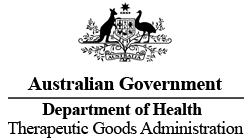









The Australian TGA has published an interim decision proposing to amend the current Poisons Standard to include the chemicals included in products commonly known as Poppers.
The delegate’s interim decision from 10th September under regulation 42ZCZN of the Therapeutic Goods Regulations 1990 (the Regulations) is to amend the current Poisons Standard in relation to alkyl nitrites and lubricants.
The decision would remove Amyl Nitrite for example from Schedule 4 (Prescription Only Medicine) and place it on Schedule 9 (Prohibited Substance). Scheduling is a national classification system that controls how medicines and chemicals are made available to the public. Medicines and chemicals are classified into Schedules according to the level of regulatory control over the availability of the medicine or chemical, required to protect public health and safety.
Schedule 9 Prohibited Substance New Entries would be:
ALKYL NITRITES except those specifically listed elsewhere in these Schedules, ISOPROPYL NITRITE, PROPYL NITRITE, CYCLOHEXANE NITRITE, AMYL NITRITE, BUTYL NITRITE, ISOAMYL NITRITE, ISOBUTYL NITRITE, OCTYL NITRITE
The proposed implementation date is 1st February 2019.
The matters under subsection 52E (1) of the Therapeutic Goods Act 1989 considered relevant by the delegate for the decision include that there are numerous risks of harm associated with alkyl nitrites including illicit use for euphoric (perceived due to dilation of blood vessels in brain and periphery), analgesic and muscle relaxant effects.
There appears to be an increasing trend with time in the use and abuse of volatile alkyl nitrites, with a 56% increase in exposures from 2009 to 2014 according to statistics collected from Australian Poisons Information Centres.
According to the TGA Ingredient Database, amyl nitrite, octyl nitrite and nitrite are available for use as an Active Ingredient in Biologicals, Devices (amyl nitrite only) and Prescription Medicines.
The international legal status of alkyl nitrites is unclear. In the European Union (EU), isobutyl nitrite was classified as a class 2 carcinogen under the EU Directive 76/769/EEC, making it illegal for shops to sell this variety of poppers.
In January 2016, the United Kingdom (UK) government included alkyl nitrites in a list of banned psychoactive substances, but this decision was set to be reviewed, and it is unclear whether this decision remains.
In New Zealand (NZ), amyl nitrite is a prescription medicine except when sold to a person who holds a controlled substances licence (issued under section 95B of the Hazardous Substances and New Organisms Act 1996) authorising the person to possess cyanide and except when sold to an exempt laboratory covered by a Hazardous Substances and New Organisms Act 1996 approved code of practice. Octyl nitrite, isobutyl nitrite, butyl nitrite and isoamyl nitrite are classified as prescription medicines.
Poppers’ is the street term for various alkyl nitrites taken for recreational purposes through direct inhalation. In the past these included amyl nitrite, butyl nitrite and isobutyl nitrite, with more recent variations including isopropyl and cyclohexyl nitrite. Alkyl nitrites have a smooth muscle relaxant effect.
To avoid detection by authorities, alkyl nitrites are often labelled and sold as leather cleaner, video head cleaner, incense or room-odorising products. This can result in misidentification and impair the risk assessment.
https://www.tga.gov.au/book-page/13-alkyl-nitrites
You must be logged in to post a comment Login